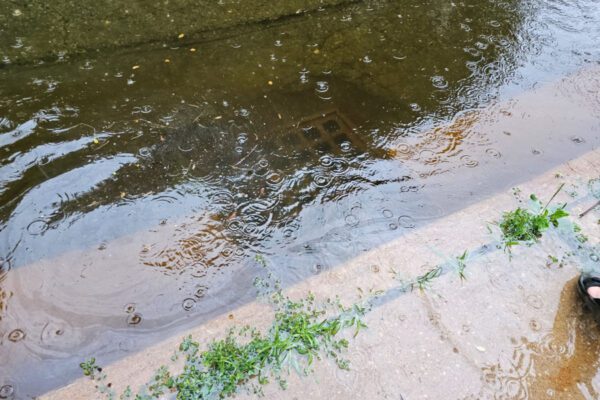According to the EPA, an upward estimate of 75,000 sewage backup incidents occur annually in the United States. Sewer backup, or water backup, can cause significant damage to your home and personal belongings. The best way to protect your home is to have the proper protections in place before damage occurs.
Water backup coverage is the best form of protection in these situations. While standard homeowners insurance protects against various risks, including accidental water damage, coverage for water backup is often not included.
Understanding Water Backup Coverage
Homeowners insurance covers water damage caused by internal plumbing issues, such as a burst pipe, but water backup coverage covers outside factors that can infiltrate your home. Water backup coverage, also known as sewer backup coverage, provides protection in case of damage due to water or sewer backup and sump pump failure. Water backup coverage is not the same as flood insurance.
Water backup insurance covers the cost of water damage restoration, including cleaning up the affected area, replacing or repairing damaged items, and restoring your home to its previous condition. Replacement items may include flooring, walls, furniture, and personal property damaged by backed-up water.
Protection Beyond Homeowners Insurance
Adding water backup insurance to your homeowners policy ensures comprehensive protection against a broader range of perils. However, taking preventive measures is equally important as having a policy in place. You can prevent water backups by regularly maintaining your sewer lines and sump pumps. Clearing debris from drainage systems, checking sump pump functionality, and addressing tree root issues early can also minimize the chances of water backup.
Importance of Sewer and Sump Pump Maintenance
Water backup incidents can arise from sump pump overflow, tree roots invading sewer lines, clogged drainpipes, or overwhelmed municipal sewer systems. These events often result in extensive damage to your property and possessions. Sump pumps are especially useful in preventing water from collecting in your basement. Unfortunately, sump pumps can malfunction or fail, especially during heavy rains or power outages.
Is Water Backup Coverage Cost-Effective?
Coverage costs for water backup insurance can vary based on several factors. Such factors include your location, level of coverage, the value of your home, and the insurance company you choose. Investing in water backup insurance is cost-effective, considering the potential cost of repairs. Not having coverage risks significant out-of-pocket expenses, particularly if damage occurs to your home’s structure.
In addition to protecting your wallet, investing in the proper protection can provide peace of mind. Instead of worrying about potential damage and what it might cost, you can focus on enjoying your home and the memories you create within it.
Tips for Selecting the Right Coverage
Wondering which coverage is best for you? The Horton Group can help you find the right solution for you and your home. Here are just a few things to consider when weighing your options:
- Evaluate Your Risk: Consider your location. Living by a body of water makes your home more prone to flooding. Additionally, heavy rainfall and surrounding large trees can lead to a higher likelihood of drain backups or sump pump failures.
- Review Coverage Limits: Ensure the policy’s limits meet potential repair and restoration costs. Evaluate the value of your home, the contents inside, and the potential extent of damage to determine an appropriate coverage limit.
- Understand Exclusions: Carefully review the policy’s exclusions to understand what incidents are not covered. Some policies may have specific exclusions related to maintenance-related issues or pre-existing conditions.
- Compare Quotes: Obtain quotes from multiple insurance providers to compare coverage options and costs. Different companies can offer varying levels of coverage and pricing. Take the time to shop around for coverage to find the best policy for your needs.
- Consult an Insurance Agent: If you have questions or need assistance selecting the right coverage, consider contacting an experienced insurance agent. At Horton, our personal insurance advisors can help you find a tailored solution for your home’s unique needs.
Filing a Claim
In addition to having the necessary coverage in place, knowing how to file a claim can make the recovery process smoother. Here are some steps to consider should you need to file a claim:
- Document the Damage: Take photographs and videos of the affected areas and damaged belongings. Documenting the extent of the damage can help support your claim.
- Contact Your Insurance Company: Report the water backup incident to your insurance company immediately. Be prepared to provide detailed information about the incident and its impact on your property.
- Mitigate Further Damage: Take immediate action to prevent further damage to your home. Mitigating damage may include cleaning up standing water, drying wet areas, and temporarily sealing damaged areas to prevent water intrusion.
- Keep Records: Maintain a detailed record of all communication with your insurance company. Take note of the date and time of each conversation. Document the name of the representative you spoke with and any information or instructions provided.
- Work with Professionals: Work with reputable restoration professionals to assess the damage and provide estimates for repair and restoration costs. Ensure you retain copies of all estimates and invoices related to the repairs.
Get Protection Today
By adding water backup coverage to your home insurance policy, you’re giving your home the additional layer of protection it needs. Understanding the coverage details, assessing your risk, and selecting the right insurance policy can safeguard your home from potential water backup incidents.
Interested in learning more? At The Horton Group, our personal insurance professionals are committed to protecting you and your home. Get in touch with a professional today!
Material posted on this website is for informational purposes only and does not constitute a legal opinion or medical advice. Contact your legal representative or medical professional for information specific to your legal or medical needs.



